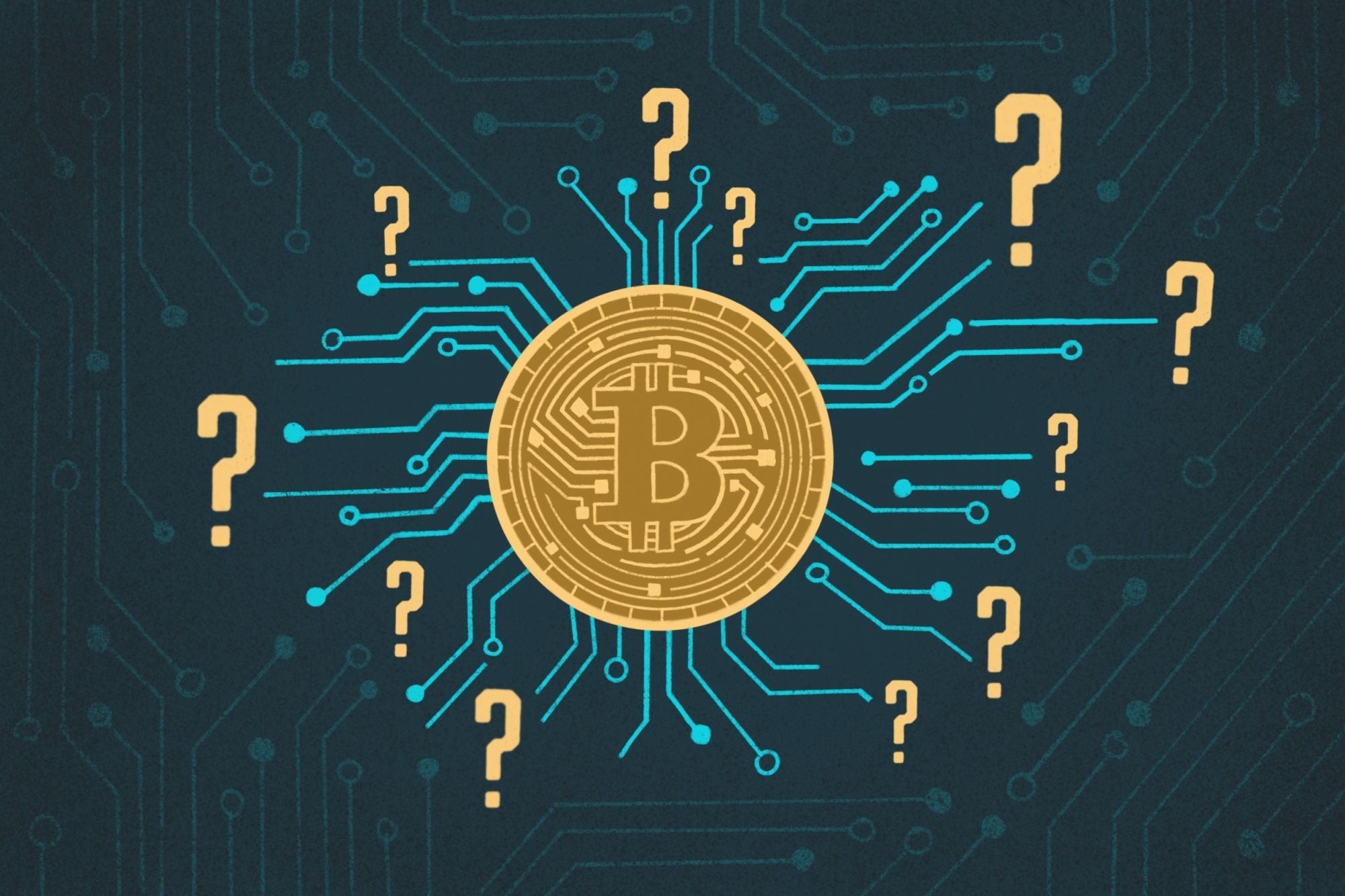
Digital money blockage: Fighting a lost fight
Visit https://tradenaira.com/news for more business news.
On February 1, 2021, the wealthy person Tesla chief, Elon Musk, added #bitcoin to his Twitter and trusted digital currencies would get "expansive acknowledgment." The viral post cleared his situation on the business, which kept him swaying for a very long time and aided in pushing the advanced money's cost up by as much as 20%.
Four days after the Musk support, the Central Bank of Nigeria (CBN) gave a roundabout, keeping monetary establishments from "managing in cryptographic forms of money or encouraging installments for digital currency trades." In a letter, the CBN said it was reminding banking foundations that bargain in computerized monetary forms or encouraging their exchanges was "disallowed."
It charged the banks to recognize individuals or elements executing digital money or working digital money trades on their foundation and "guarantee that such records are shut quickly" or face "serious administrative approvals".

Previously and even after the most recent CBN's assertion on cryptographic money, Nigeria is arranged on the worldwide computerized cash map as a "tolerant," as against "petulant" and "antagonistic" country. With the new movie, there are worries among market brokers that the nation could join the disallowance rundown of the venture that has become a craze worldwide.
This isn't the first run through the summit bank that would play with the adolescent drove venture window. In 2017, it gave a comparative round, prohibiting exchanges in all types of virtual monetary standards. In this way, it issued proclamations to alert Nigerians to be careful about cryptographic money interests, focusing on that "virtual monetary standards are not a legitimate delicate" country.
Some time prior, a council was set up by the Central Bank and the Nigeria Deposit Insurance Corporation (NDIC) to investigate the chance of embracing bitcoin and other innovation-driven monetary standards. The advisory group presented its report. A few sub-boards were supposed to be "dealing with the issue," as per the Director, Banking and Payments System Department at CBN, 'Dipo Fatokun.
In a public statement given on February 28, 2018, the controller rehashed that cryptographic forms of money, for example, Bitcoin, Ripples, Monero, Litecoin, and Dogecoin Onecoin, just as trades, for instance, NairaEx were not authorized or managed by the CBN. It cautioned, in the same way as other of its companions around the globe, that vendors and financial backers in any digital money were not secured by law, consequently might be not able to look for a legitimate review in the occasion of the disappointment of the exchangers or breakdown of the business.
Financial backers in advanced monetary standards know that it is an unsafe business where people lose hopelessly or make incredible fortunes in the sparkle of an eye. Crypto resources are unstable. Be that as it may, so additionally are numerous different speculations, including value and foreign trade. When the air pocket blasts, financial backers lick their injuries and wish they were somewhat more brilliant.
To be sure, cooperation and information on crypto speculation have kept on fanning out quickly. However, among the controllers, advanced cash trade bears the weight of carefulness and dispute, like recorded debate and suspicion saw each time cash changed to an all the more innovatively important structure.
And there are adequate worries about its wellbeing, instability, and security to keep monetary controllers conscious. For one, throughout the entire existence of humanity, tax evasion had never been this delicate. However, a sensible number of nations have been intense enough to go up against computerized monetary standards' fundamental difficulties and acknowledge the development for what it is – verifiable reality.
For example, aside from Ecuador and Bolivia, the Caribbean, North and South American nations have perceived virtual monetary forms as satisfactory trade methods. In Canada where official adequate is as yet in doubt, organizations managing in virtual economic standards are needed to enlist with the Financial Transactions and Reports Analysis Center of Canada (Fintrac), actualize consistence programs, keep indicated records, report dubious or fear monger related exchanges and check if a client is a politically-uncovered individual.
In Europe – across the west, focal, and north –, there are no legitimate imperatives on virtual cash exchanges. Starting in 2013, the German Finance Ministry had reported that bitcoin was a "unit of record" and could be utilized for tax collection and exchange the nation, inferring that exchange, as on account of euros, should pull in worth-added charge (VAT). Notwithstanding, it didn't order it as unfamiliar cash or e-cash yet as "private cash," which could be utilized in multilateral clearing circles. In November 2019, Germany took its bitcoin progressivism a step higher, passing a law to permit banks to sell and store the cash same.
While digital currencies are viewed as unlawful as a trade-in numerous Asian nations, a couple of countries have overcome the chances. For example, the Israeli government forces a 25 percent capital addition charge on the exchange in bitcoins. Exchanging bitcoins is likewise treated as a conventional business; henceforth, it pulls in an annual corporate assessment just as a 17 percent VAT.
As Nigeria makes new guidelines to ban crypto resource exchanging, another authoritative record anticipates endorsement in South Africa to formalize the space. Toward the end of last year, the Financial Sector Conduct Authority (FSCA) reported that it had distributed "a draft statement of crypto resources as a monetary item under the Financial Advisory and Intermediary Services Act (FAIS)," opening the archive for contributions until January 28, 2021.
South Africa's specialists started the excursion to locate the correct homegrown order mark for cryptographic forms of money in 2014. An expanding number of jobless adolescents accepted the stages to keep themselves lawfully drawn in and avoid violations.
"The draft assertion, not the slightest bit, impacts the status of crypto resources with regards to other neither laws … nor does it endeavor to control, legitimize or offer trustworthiness to crypto resources. The draft affirmation is just proposed to be a between time step in alleviating certain impending dangers in the crypto resources climate, forthcoming the result of more extensive improvements presently occurring through the Crypto Assets Regulatory Working Group (CAR WG), which will illuminate future strategy intercessions to be executed across an assortment of controllers and laws," FSCA noted.
There are as yet a few nations that have not taken an authority position on the pattern.
For example, Nigeria is a solitary West African country with accurate information regarding the matter. Notwithstanding, official declarations made as of late have been to a great extent reformist and obliging as against Nigeria's float to the past. Subsequently, with driving economies previously mainstreaming digital currencies into their resource classes and formalizing their trades, the new CBN's choice appears to fail to impress anyone.
While the Apex didn't give a particular explanation on why it suspended monetary organizations from engaging in the business, economic specialists proposed the authority is essentially purchasing time forthcoming when the administrative system would be tweaked.
"Presently, there is no administrative structure for digital currency in Nigeria. Putting a stop to it is alright until the public authority, and its offices have the ability to do as such," Chief Operating Officer of InvestData Limited, Ambrose Omordion, revealed to The Guardian.
Godwin Owoh, an educator of applied financial aspects, also portrayed the order as "adept" yet added that the activity was a shroud to shield the CBN insufficiency to screen the business's intricacy.
He noticed that the CBN "has no administrative ability to screen complex plans of that nature. This is just fit where banking area guideline is less obscure and monitored with cutting edge auto-applications that would have caught the exchanges without the mechanical methodology of guiding banks to close clients' records."
Owoh said the powerlessness of the zenith bank to ascend to the specialized call of digital currency trade repayment meant that the "store cash banks (MDBS) are a long way in front of their controller in item improvement and development." He added that it ought to be troubling that an administrative authority would depend on a fiat approach and "bossiness" to conceal its specialized insufficiency.
To address the weaknesses, he prompted that "a broad imaginative 'war office' situation develop on what forceful financial howdy tech items, enlisting the best new IT minds to drive standards far beyond what gets among DMBs and companion seat stamping" are essential.

The crackdown on digital money exchanging is ablaze on the CBN's arrangement to keep the adolescent driven virtual space under check. In December, it concocted a capital prerequisite for administrators in the electronic installment environment. The capital necessity for portable cash and exchanging/preparing administrators is N2 billion. Installment terminal arrangement specialist co-ops (PTSP) and installment arrangement specialist co-ops (PSSP) are fixed at N100 million, similarly, as super-specialists are to raise N50 million each.
CBN said the capitalization applies to "new and existing business sector members" in the order, which numerous industry players said would pulverize the adolescents' creative soul and tech-driven new companies.
Nigeria is Africa's chief in bitcoin exchanging. In 2020, Nigeria drove the landmass' bitcoin exchanging with shared month to month volumes of about $25.8 million, trailed by South Africa ($8.2m) and Kenya ($7.7m).
Earlier today, https://tradenaira.com/news/uptick-in-fixed-yield-triggers-huge-selloff-in-values.














